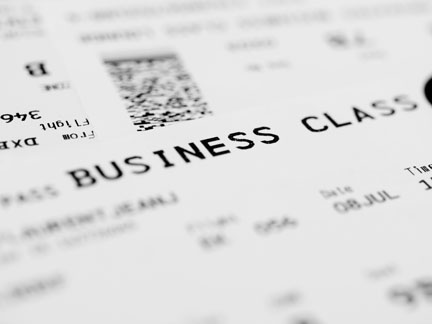Lawyers who fly business class for work-related trips should not expect their opponents to pick up their airfare tabs even if they win their case, a Superior Court judge said this week.

“In my view, business class tickets are much like a lawyer’s over-preparation; it may be a worthwhile expense for the client, but cannot be imposed on the opponent,” Justice Edward Morgan said in a costs endorsement in
Bombardier v. AS Estonian Air.
The Montreal-based aircraft manufacturer had tried to bring Estonian Air, which is owned largely by the state of Estonia, to a Canadian courtroom over breach of contract allegations.
Estonian Air was the victorious party, but Bombardier will not foot the bill for the business class flights the airline’s lawyers took to London to cross-examine a witness, Morgan said, ruling they can only recover the cost of economy class flights.
“Counsel for the plaintiff was under the same time constraints, was handling the same large case, and was flying the same long distance as defendants’ counsel, but flew economy,” the judge said.
It’s not that business class travel is “an extravagant expense for lawyers representing a foreign government in a multi-million dollar claim and facing the cross-examination of a senior official,” Morgan said, adding it’s no doubt the lawyers were expected to be “on top of their game” upon arrival in London.
But he added: “That said, the question in a costs award is not what is reasonable to bill to one’s client but what is reasonable to bill the opponent. The idea is to partially reimburse the winner without chilling further litigation.”
Morgan also commended Bombardier for making do with one lawyer instead of two in London and enduring a trip to the U.K. in the back of the plane. The judge had no qualms about sending two lawyers instead of one to London, but ordered that the two Estonian Air lawyers’ total airfare of $7,000 be recalculated based on the amount the plaintiff’s economy class-cruising lawyer paid for the trip, which was only $1,200.

 “In my view, business class tickets are much like a lawyer’s over-preparation; it may be a worthwhile expense for the client, but cannot be imposed on the opponent,” Justice Edward Morgan said in a costs endorsement in Bombardier v. AS Estonian Air.
“In my view, business class tickets are much like a lawyer’s over-preparation; it may be a worthwhile expense for the client, but cannot be imposed on the opponent,” Justice Edward Morgan said in a costs endorsement in Bombardier v. AS Estonian Air.